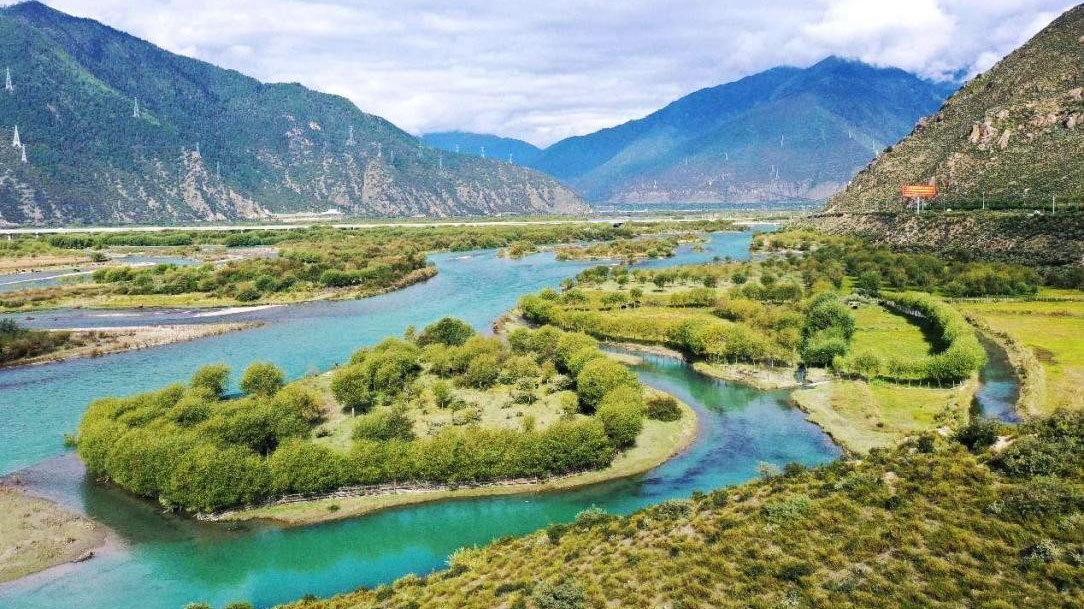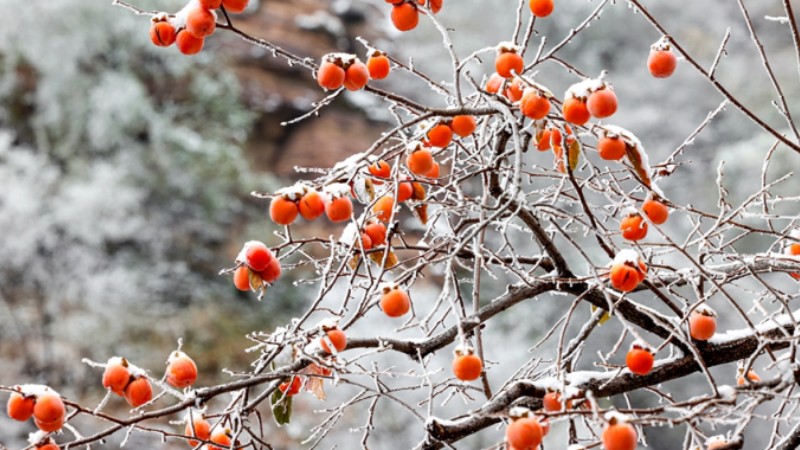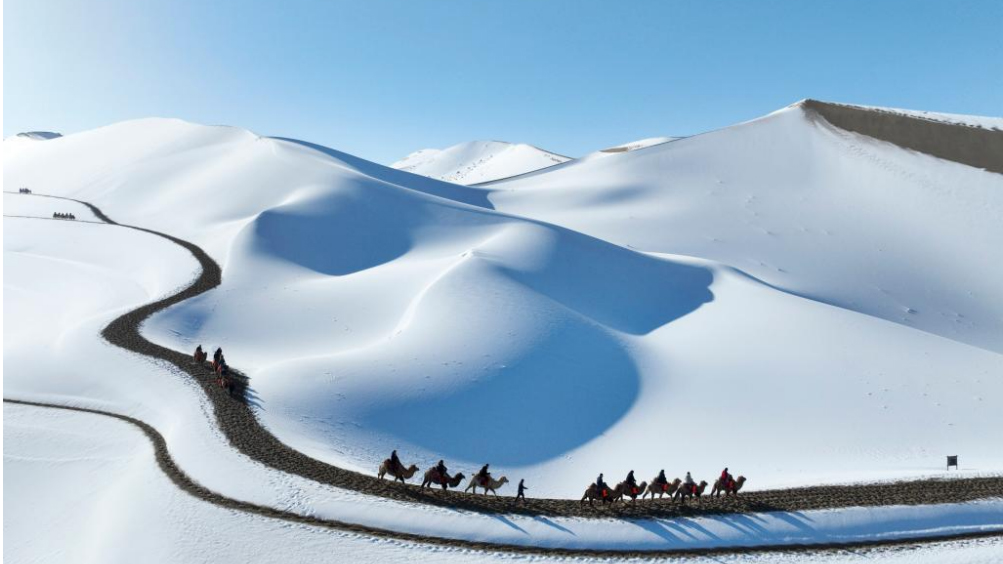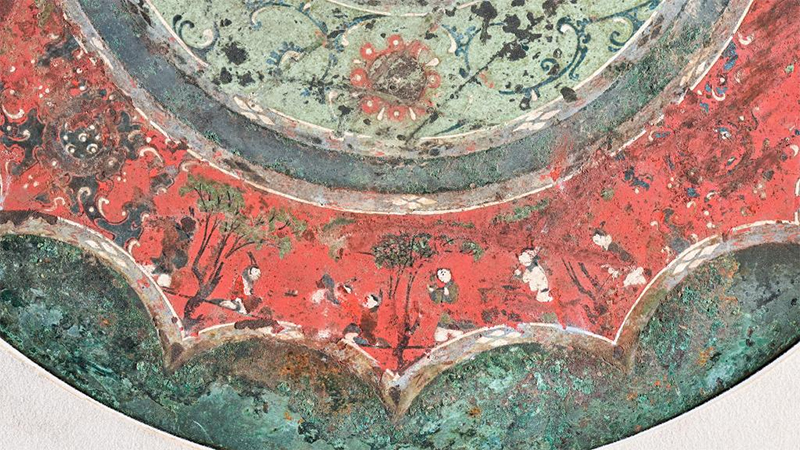Ice wine industry pours new life into SW China's mountainous areas
Walking into the grape fields of Tacheng town in Weixi Lisu Autonomous County, in southwest China's Yunnan Province, one finds bunches of Vidal ice grapes emitting an attractive fruity aroma.
These grapes are expected to be harvested in January at temperatures of minus 7 degrees Celsius or lower and then made into a local specialty: ice wine. The ice grape industry has boosted farmers' income in high-altitude mountainous areas, contributing to local revitalization.

Vidal ice grapes are grown at a vineyard in Qibie village, Tacheng town, Weixi Lisu Autonomous County, southwest China's Yunnan Province, Nov. 17, 2003. (People's Daily Online/Du Mingming)
Unlike other wines, ice wine is made from grapes frozen while still on the vine. This freezing process naturally concentrates the sugars in the grapes, resulting in an extremely sweet wine with a distinctive flavor. The wine, known for its transparent golden-yellow color, is often referred to as "liquid gold."
The favorable natural conditions in Weixi make it an ideal location for ice wine production. The area's many river valleys feature a significant temperature difference between day and night, conducive to grape growth. After more than a decade of development, the local ice grape industry has reached a significant scale.

Vineyard in Qibie village, Tacheng town, Weixi Lisu Autonomous County, southwest China's Yunnan Province, Nov. 17, 2023. (People's Daily Online/Du Mingming)
Li Huiying, a villager in Tacheng, shared with a smile, "My family grows more than 10 mu of Vidal ice grapes, and we earn at least 5,000 yuan ($704) per mu." Li added that her family previously grew corn, which was time-consuming, labor-intensive, and less profitable.
"Since we started planting ice grapes in 2009, our income has significantly increased. Lapu Valley Winery Co., Ltd. purchases the Vidal ice grapes in our village, so we don't need to worry about sales," Li said.

The processing workshop at Lapu Valley Winery, Weixi Lisu Autonomous County, southwest China's Yunnan Province, Nov. 17, 2023. (People's Daily Online/Du Mingming)
Lapu Valley Winery is among the few wineries in China that produce high-quality fine ice wine and sweet white wine. "Ice grapes are grown at high altitudes, and after years of planting and experiments, we have successfully developed ice wine here in Tacheng. The vineyards, scattered across the mountains at elevations ranging from 2,000 to 3,200 meters, have helped increase villagers' incomes by two to threefold," said Chen Junwu, chairman of the winery.
Chen noted that the winery has more than 500 mu of vineyards in Tacheng transferred from villagers and provides technical guidance to farmers managing another 1,200 mu. The unique vertical climate zone created by the high altitude results in varying temperature gradients, allowing grapes planted at different elevations to develop distinct flavor profiles.
Wang Guilong, the winemaker at the winery, explained that ice wine in Tacheng is considered high-end and niche. It is produced from grapes grown at altitudes of 2,600 to 3,200 meters. The mountainous terrain limits the large-scale mechanization of vineyards and increases the labor cost.

Wines made by Lapu Valley Winery in Weixi Lisu Autonomous County, southwest China's Yunnan Province. (People's Daily Online/Du Mingming)
According to Wang, ice grapes are normally harvested the following January, when they are withered and frozen. He explained that the processing of ice grapes is under strict control. "The grapes are pressed and extracted soon after farmers harvest and transport them to the winery at night. Fermentation is conducted at a low temperature, between 8 and 12 degrees Celsius," he said.
As the winery is located in the core area of the Shangri-La tourism circle, winery sightseeing has become an integral part of their business. Lapu Valley Winery has developed a business model that combines tourism, winemaking, and homestays, attracting about 30,000 tourists annually and indirectly fostering entrepreneurship and employment in the surrounding villages.
Photos
Related Stories
- People taste wines during Slovenian Wine Festival
- Trending in China | Qiaohuaxiang liquor: A unique blend of sweetness and bitterness
- Feature: From Tuscany to Tianjin, Italian winery explores opportunities in Chinese market
- Interview: China perfect market for Europe's wine industry, says Slovak winemaker
- Authentic China | Take a sip of cool Chinese sweet rice wine
- Management of vineyards, wineries going smart
Copyright © 2023 People's Daily Online. All Rights Reserved.









